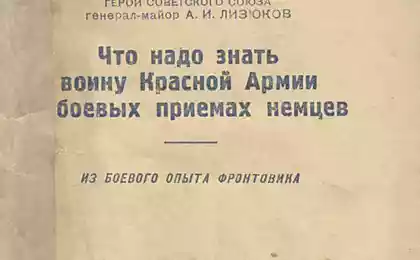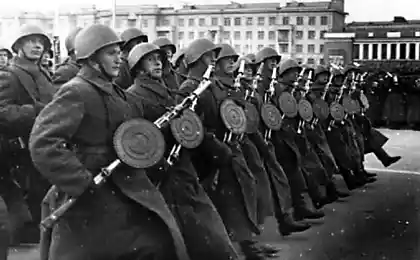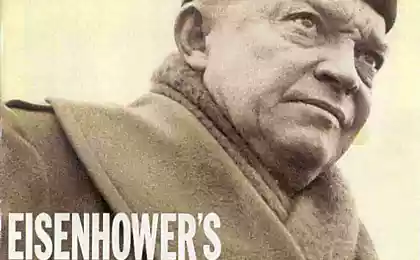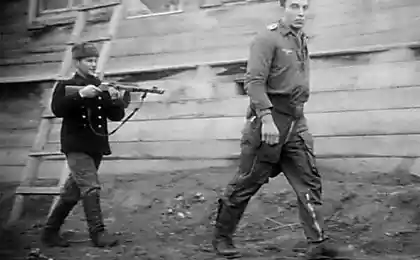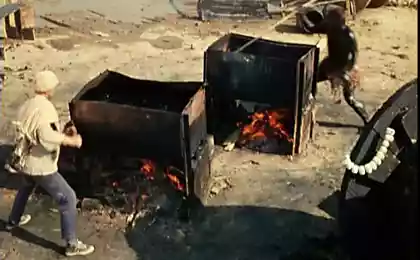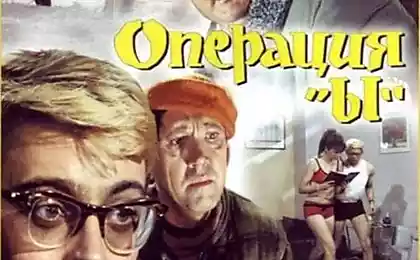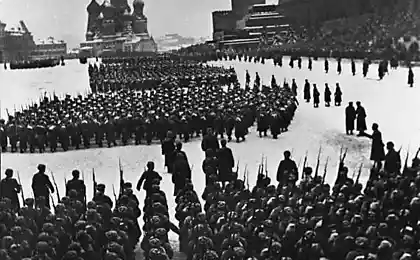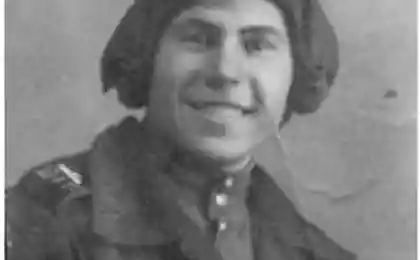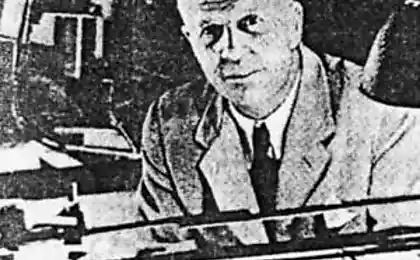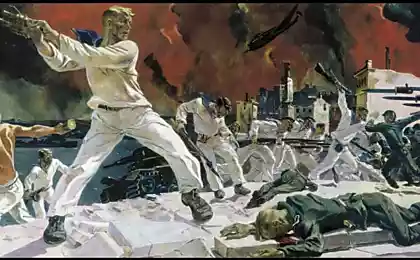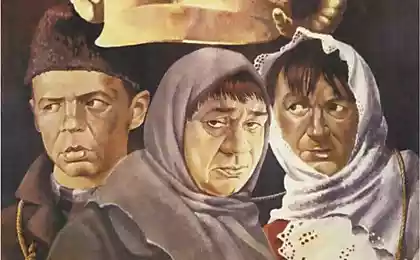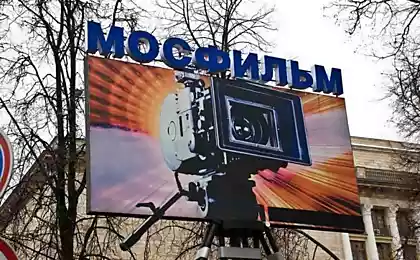698
Like on "Mosfilm" Germans sank ...
January 22, 1898, was born Sergei Mikhailovich Eisenstein. The one who put in the mouth of the great Alexander Nevsky, almost biblical words. "Who is the sword will come to us, by the sword and die." Remember? So, I do not say nothing like Alexander. But that is irrelevant ... the birthday of the great director, we remember the main film Eisenstein - "Alexander Nevsky» ...
11 photo.
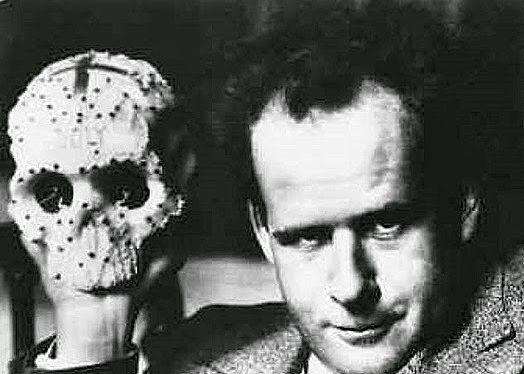
According to historians, returning after a battle in the liberation of Pskov Alexander Nevsky appealed not to the captives, and to the very Pskovians. Translated from the Old Slavonic his words sounded like this: "Oh, pskovityane! If you forget Alexander if my most distant descendants will not find you a true haven in their affliction: you will be an example of ingratitude. " Agree, the meaning is not the same. But at the moment, it does not matter.
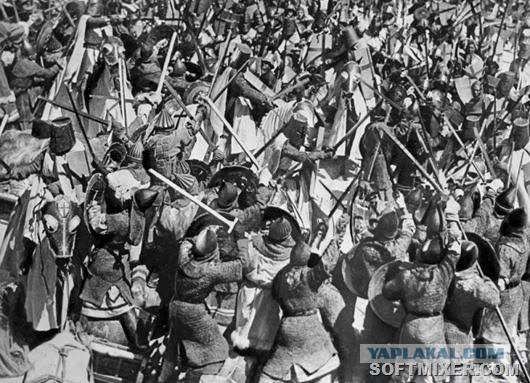
The film "Alexander Nevsky" in rolling out twice: in 1938 and 1941 respectively. And if the first time the audience was impressed simply epic scale, in the beginning of the war, the painting was intended to raise the morale of the citizens. It is worth noting that both times the picture was a crazy success.
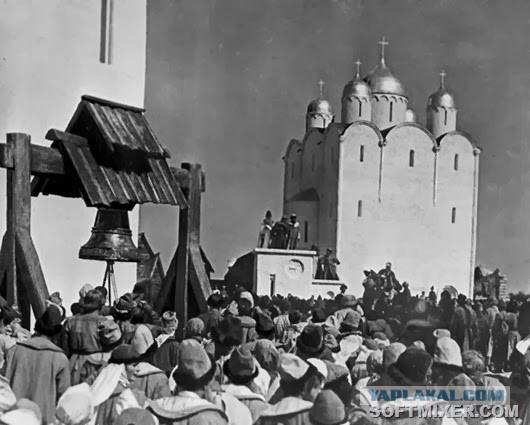
Sergei Eisenstein was trying to keep the historical accuracy in the manufacture of armor of the prince and his retinue. He personally watched the process of making the sets and costumes, and even provided for the study of subjects artists genuine weapons of Russian soldiers of the XIII century from the Hermitage.
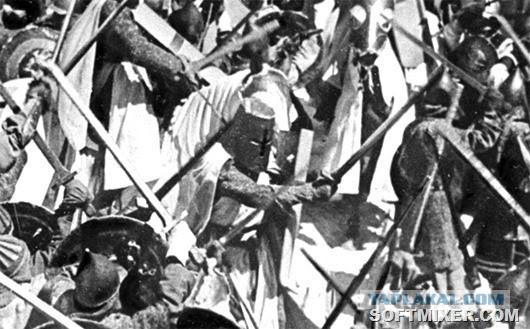
However, despite this, are still rumors that the Teutons were wearing helmets made of conventional buckets. And the governor of Pskov traitor solid wore in the film is the cheapest form of Asian helmet that he was worn not by rank. The latter fact is - the truth. But, as we have already agreed, not everything in this life is of fundamental importance.
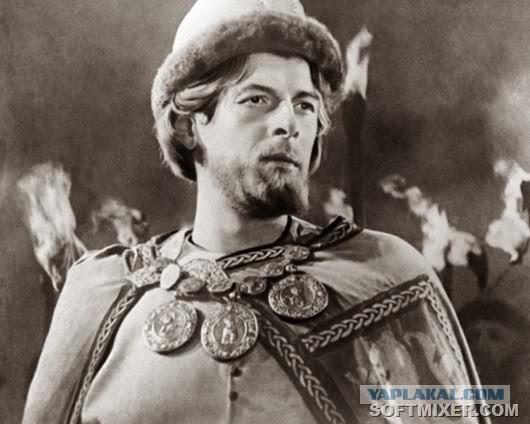
Snow-covered endless shore of Lake Peipsi shot near the "Mosfilm". For this wasteland paved and covered with artificial snow from naphthalene chalk and salt. Sometimes even using liquid glass. But the scene where the Teutonic Knights falls through the ice, were sealed in the halls of the studio. They built a huge pool and launched them "floe" of painted plywood and foam.

The genius of the music for this film was written by Sergei Prokofiev. Audio series "Alexander Nevsky" consists of symphonic and choral music, which was later integrated into the self-cantata. However, he was released with the film poorly recorded audio track.
The fact that Stalin saw the movie with the "rough" sound and immediately adopted it to the show. Then Eisenstein already afraid to make changes. But does it matter?
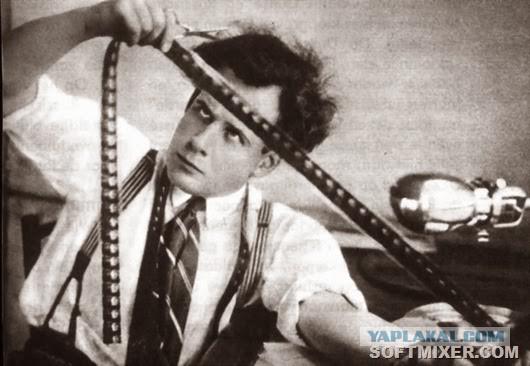
Writer, director, artist, teacher, theorist of art - this is it. He took off his masterpiece films of his time, he shock his appearance and was the one who called the strange man art.
Sergei Mikhailovich Eisenstein was born 10 (22) January 1898 in Riga in the family of an architect. The parents were wealthy and very busy people, so the boy lived in abundance, but lonely. In 1907, the family lived in Paris.
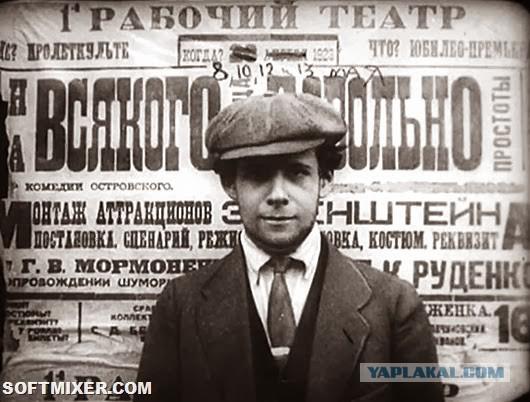
Seryozha was given a good education: he studied three foreign languages, playing the piano, photographed, painted. In 1912, the boy's parents divorced and he remained with the pope. In 1915 Eisenstein graduated from a technical school, he entered the Petrograd Institute of Civil Engineers.
In 1918 he was called up for military service and enlisted in the school warrant engineering troops, later entering into the Red Army. There he had an affair with a dancer Maria Pushkin. During the service, he participated in the initiative: actor and director.
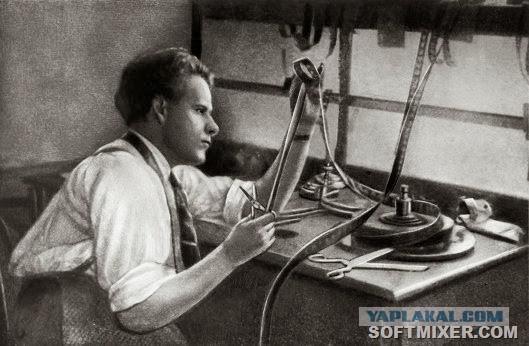
In 1920 he attended a course a little translation (Japanese), and went to work in the theater Proletkult. In 1921-1922, Eisenstein was a student and a trainee director of public higher directors' workshop under the direction of Vsevolod Meyerhold. Since 1923, the theater workshop led by Eisenstein Proletcult, taught there.
In 1928, together with the crew goes abroad, to get acquainted with the sound cinema. In 1930, he signed a contract with the film company Paramount Pictures on adaptation of the novel by Theodore Dreiser's "An American Tragedy." But from his script was soon abandoned.
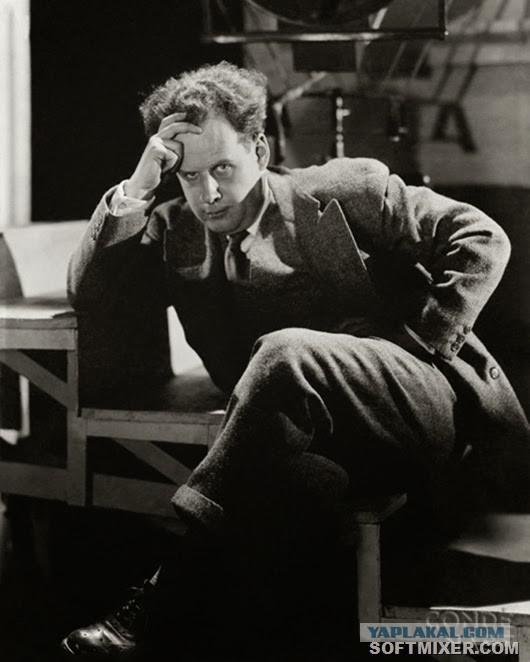
In 1932, on returning home, Eisenstein became head of the department of directing the State Institute of Cinematography, and in 1935 was awarded the title of Honored Artist of the RSFSR. He continued to make films, especially during World War II.
In 1948, Sergei Mikhailovich died of a heart attack.
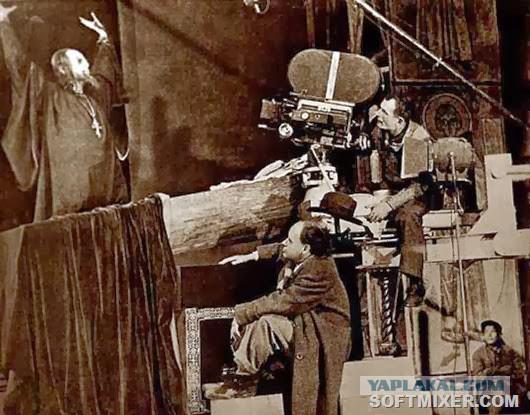
Source:
11 photo.

According to historians, returning after a battle in the liberation of Pskov Alexander Nevsky appealed not to the captives, and to the very Pskovians. Translated from the Old Slavonic his words sounded like this: "Oh, pskovityane! If you forget Alexander if my most distant descendants will not find you a true haven in their affliction: you will be an example of ingratitude. " Agree, the meaning is not the same. But at the moment, it does not matter.

The film "Alexander Nevsky" in rolling out twice: in 1938 and 1941 respectively. And if the first time the audience was impressed simply epic scale, in the beginning of the war, the painting was intended to raise the morale of the citizens. It is worth noting that both times the picture was a crazy success.

Sergei Eisenstein was trying to keep the historical accuracy in the manufacture of armor of the prince and his retinue. He personally watched the process of making the sets and costumes, and even provided for the study of subjects artists genuine weapons of Russian soldiers of the XIII century from the Hermitage.

However, despite this, are still rumors that the Teutons were wearing helmets made of conventional buckets. And the governor of Pskov traitor solid wore in the film is the cheapest form of Asian helmet that he was worn not by rank. The latter fact is - the truth. But, as we have already agreed, not everything in this life is of fundamental importance.

Snow-covered endless shore of Lake Peipsi shot near the "Mosfilm". For this wasteland paved and covered with artificial snow from naphthalene chalk and salt. Sometimes even using liquid glass. But the scene where the Teutonic Knights falls through the ice, were sealed in the halls of the studio. They built a huge pool and launched them "floe" of painted plywood and foam.

The genius of the music for this film was written by Sergei Prokofiev. Audio series "Alexander Nevsky" consists of symphonic and choral music, which was later integrated into the self-cantata. However, he was released with the film poorly recorded audio track.
The fact that Stalin saw the movie with the "rough" sound and immediately adopted it to the show. Then Eisenstein already afraid to make changes. But does it matter?

Writer, director, artist, teacher, theorist of art - this is it. He took off his masterpiece films of his time, he shock his appearance and was the one who called the strange man art.
Sergei Mikhailovich Eisenstein was born 10 (22) January 1898 in Riga in the family of an architect. The parents were wealthy and very busy people, so the boy lived in abundance, but lonely. In 1907, the family lived in Paris.

Seryozha was given a good education: he studied three foreign languages, playing the piano, photographed, painted. In 1912, the boy's parents divorced and he remained with the pope. In 1915 Eisenstein graduated from a technical school, he entered the Petrograd Institute of Civil Engineers.
In 1918 he was called up for military service and enlisted in the school warrant engineering troops, later entering into the Red Army. There he had an affair with a dancer Maria Pushkin. During the service, he participated in the initiative: actor and director.

In 1920 he attended a course a little translation (Japanese), and went to work in the theater Proletkult. In 1921-1922, Eisenstein was a student and a trainee director of public higher directors' workshop under the direction of Vsevolod Meyerhold. Since 1923, the theater workshop led by Eisenstein Proletcult, taught there.
In 1928, together with the crew goes abroad, to get acquainted with the sound cinema. In 1930, he signed a contract with the film company Paramount Pictures on adaptation of the novel by Theodore Dreiser's "An American Tragedy." But from his script was soon abandoned.

In 1932, on returning home, Eisenstein became head of the department of directing the State Institute of Cinematography, and in 1935 was awarded the title of Honored Artist of the RSFSR. He continued to make films, especially during World War II.
In 1948, Sergei Mikhailovich died of a heart attack.

Source:
